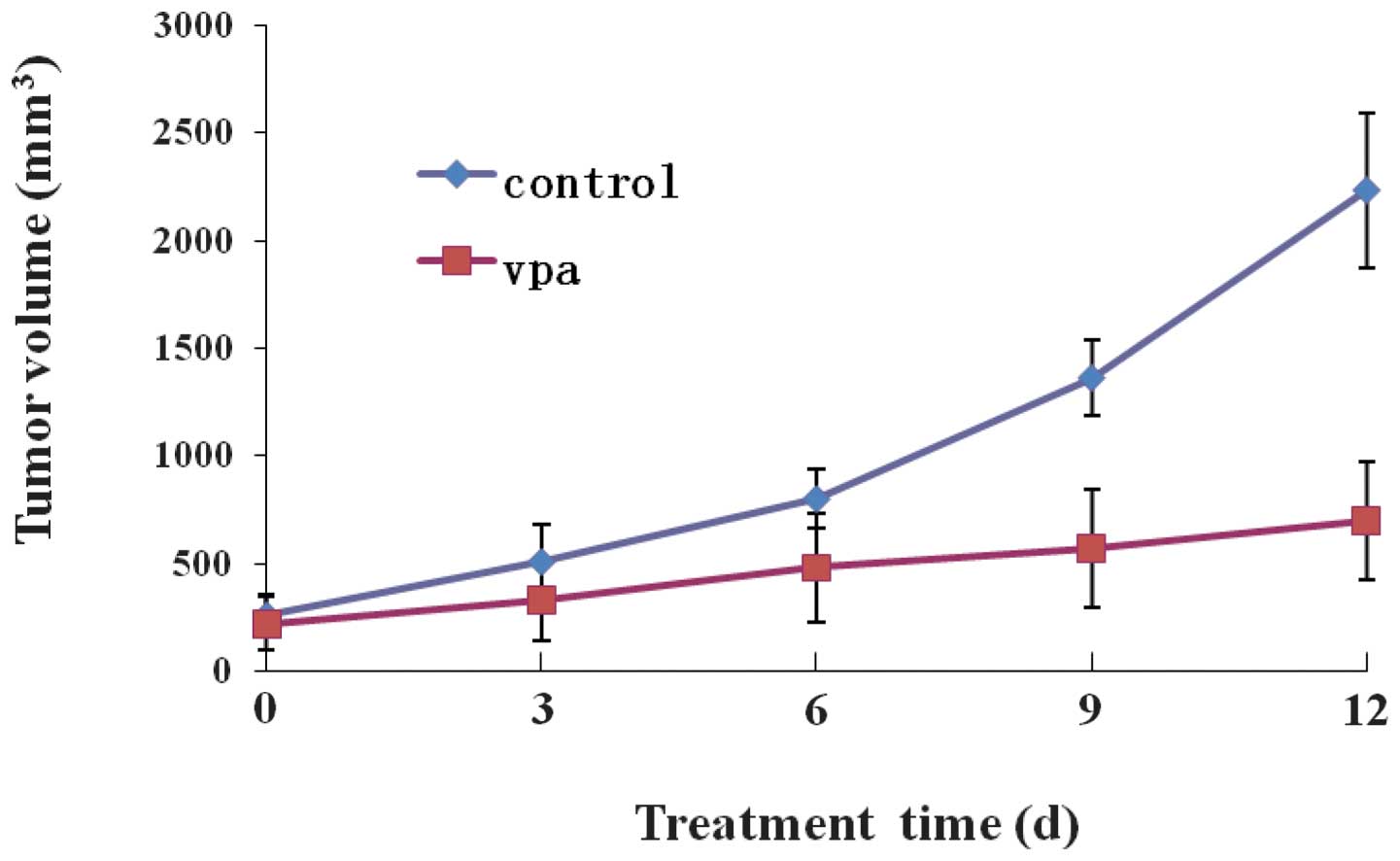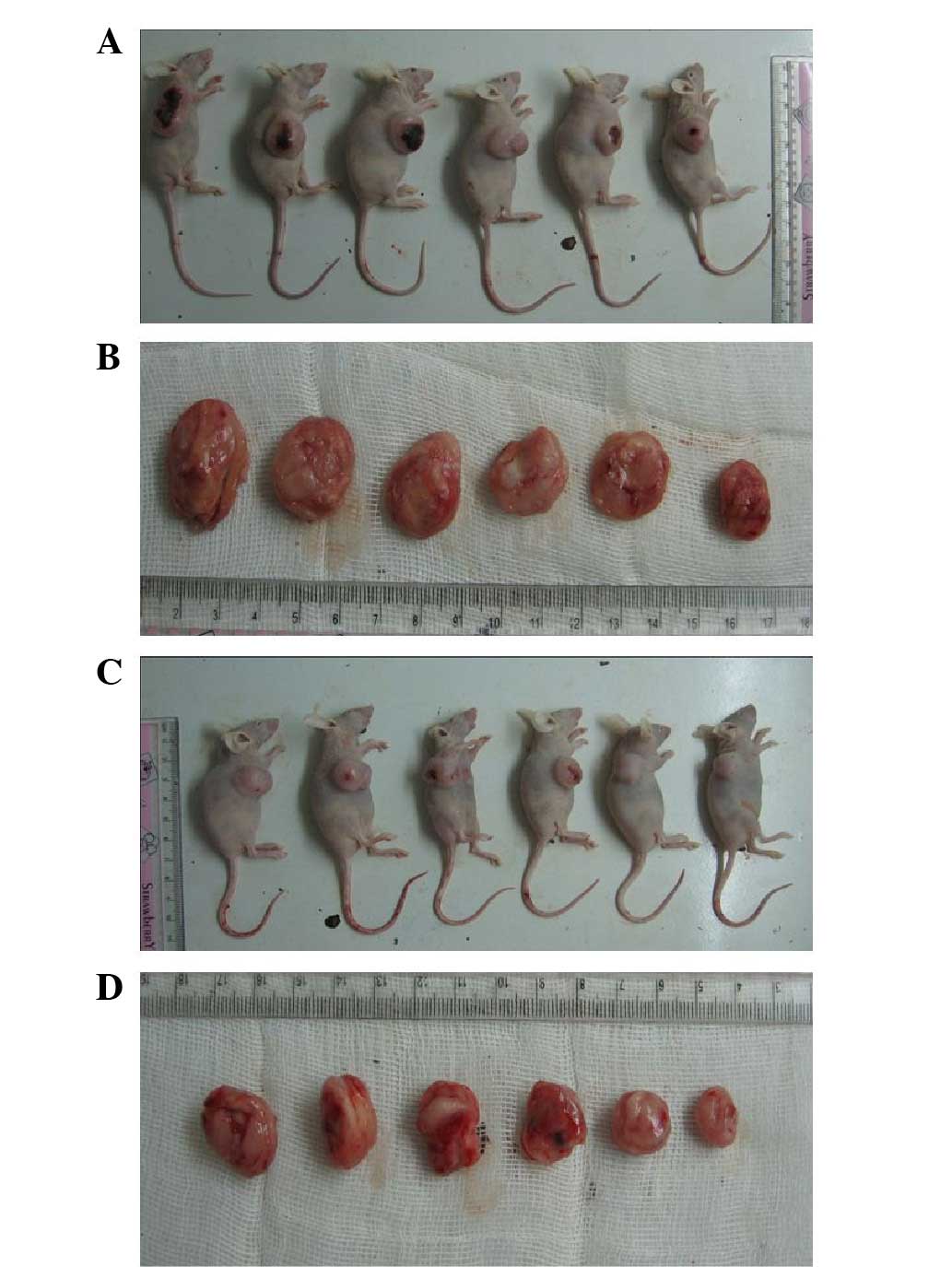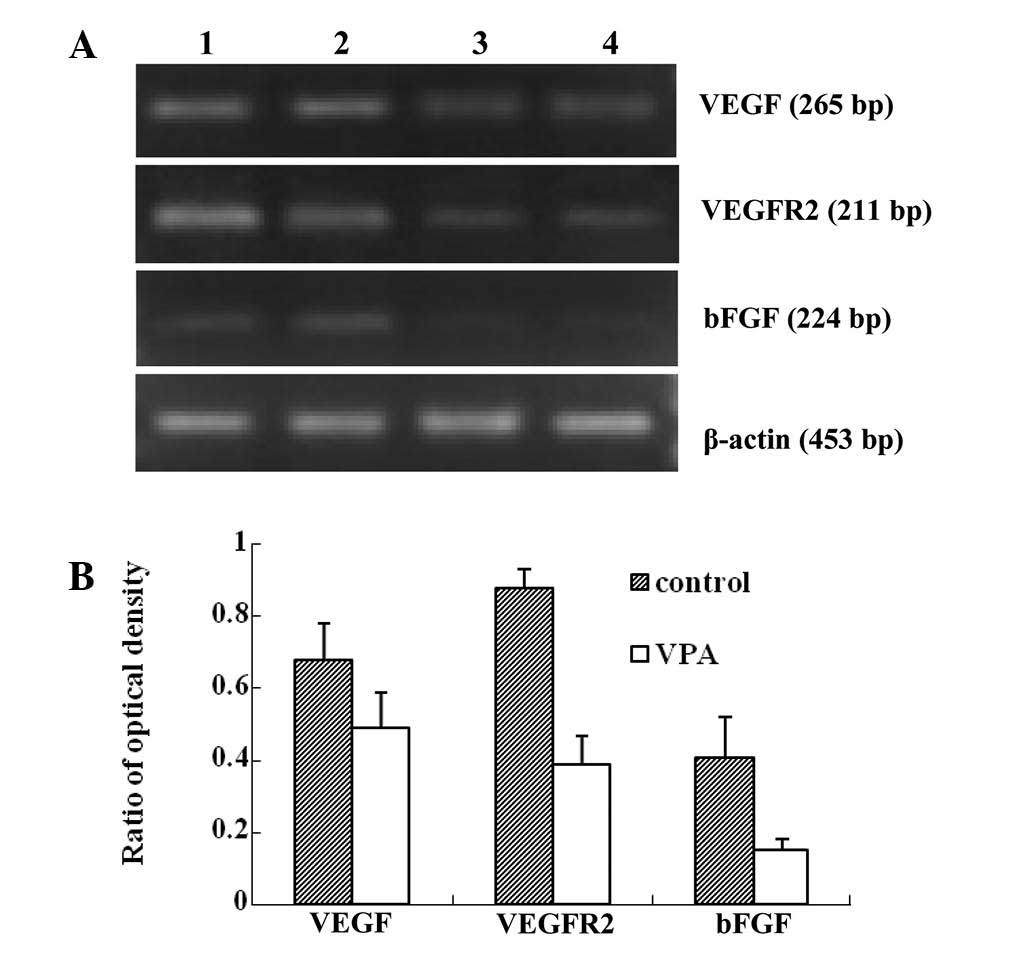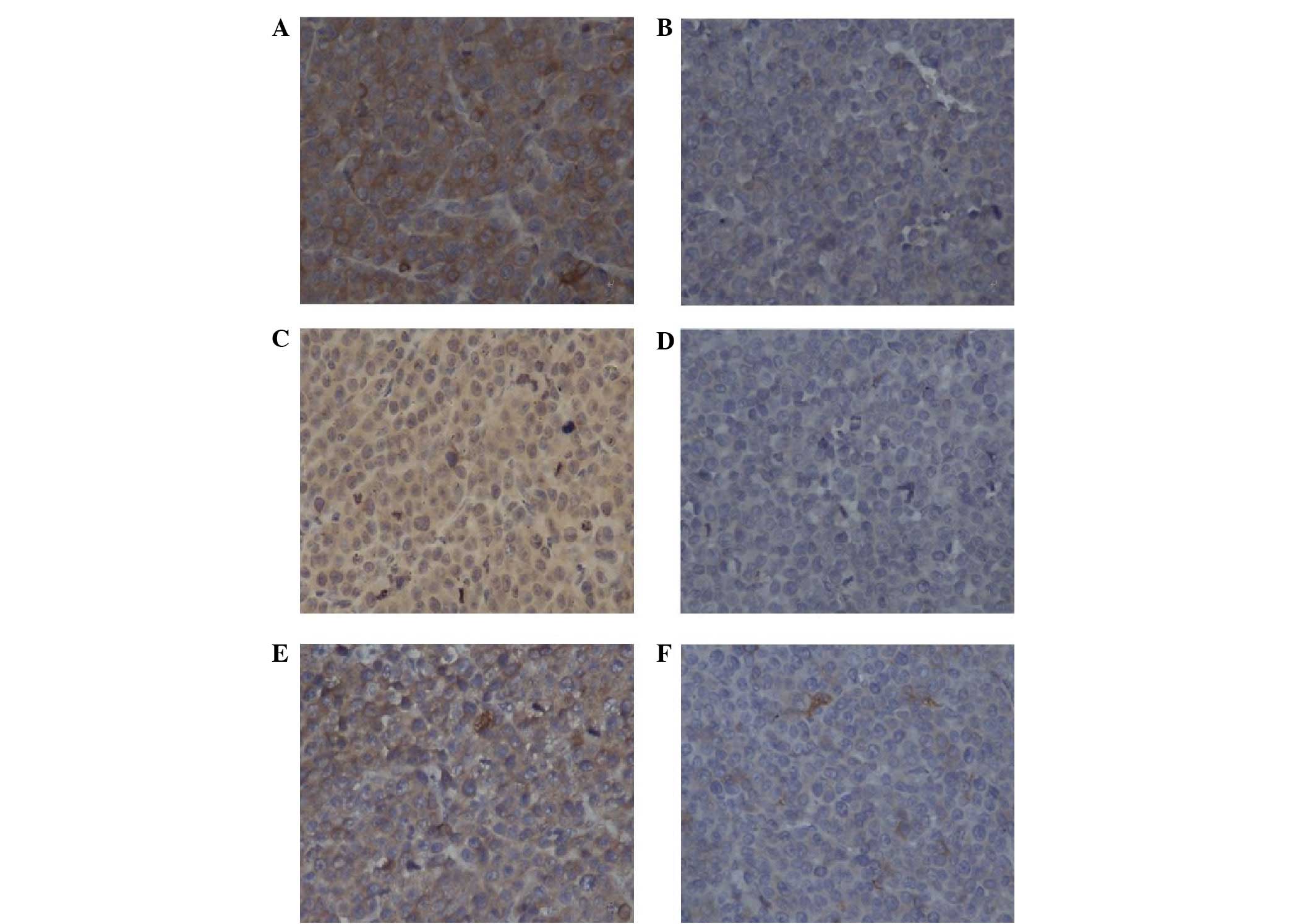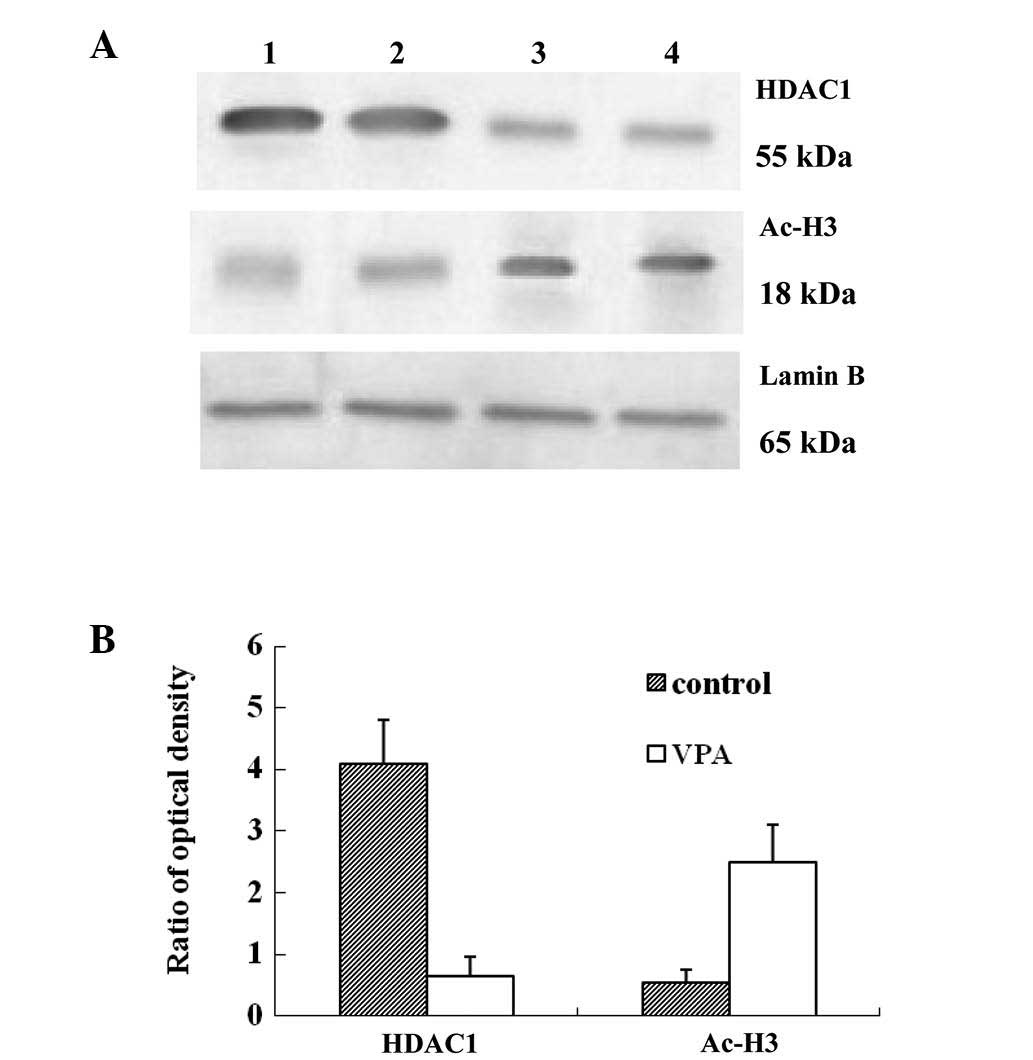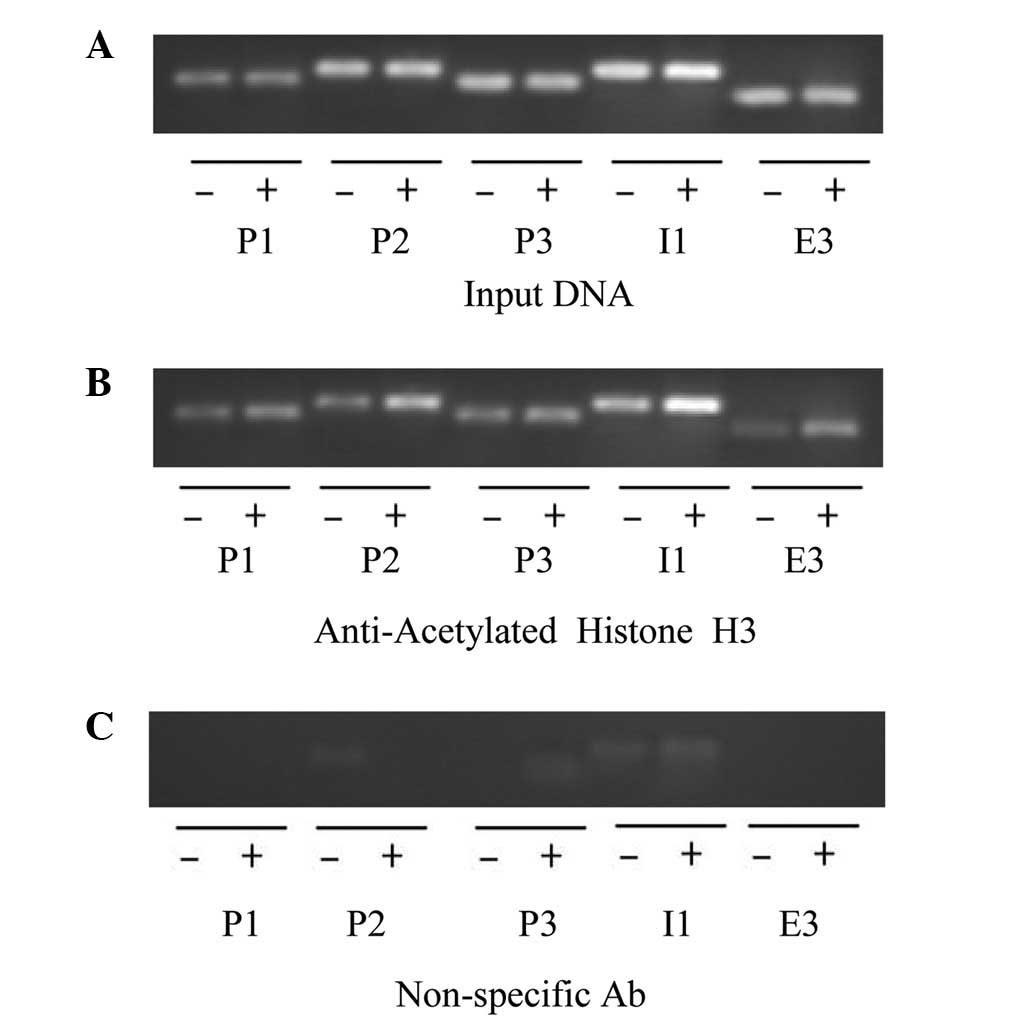|
1
|
Wichmann C, Chen L, Heinrich M, et al:
Targeting the oligomerization domain of ETO interferes with
RUNX1/ETO oncogenic activity in t(8;21)-positive leukemic cells.
Cancer Res. 67:2280–2289. 2007. View Article : Google Scholar : PubMed/NCBI
|
|
2
|
Minucci S, Nervi C, Lo Coco F and Pelicci
PG: Histone deacetylases: a common molecular target for
differentiation treatment of acute myeloid leukemias? Oncogene.
20:3110–3115. 2001. View Article : Google Scholar : PubMed/NCBI
|
|
3
|
Gelmetti V, Zhang J, Fanelli M, Minucci S,
Pelicci PG and Lazar MA: Aberrant recruitment of the nuclear
receptor corepressor-histone deacetylase complex by the acute
myeloid leukemia fusion partner ETO. Mol Cell Biol. 18:7185–7191.
1998.PubMed/NCBI
|
|
4
|
Hug BA and Lazar MA: ETO interacting
proteins. Oncogene. 23:4270–4274. 2004. View Article : Google Scholar : PubMed/NCBI
|
|
5
|
Le XF, Claxton D, Kornblau S, Fan YH, Mu
ZM and Chang KS: Characterization of the ETO and AML1-ETO proteins
involved in 8;21 translocation in acute myelogenous leukemia. Eur J
Haematol. 60:217–225. 1998.PubMed/NCBI
|
|
6
|
Lutterbach B, Westendorf JJ, Linggi B, et
al: ETO, a target of t(8;21) in acute leukemia, interacts with the
N-CoR and mSin3 corepressors. Mol Cell Biol. 18:7176–7184.
1998.PubMed/NCBI
|
|
7
|
Marks PA, Richon VM and Rifkind RA:
Histone deacetylase inhibitors: inducers of differentiation or
apoptosis of transformed cells. J Natl Cancer Inst. 92:1210–1216.
2000. View Article : Google Scholar : PubMed/NCBI
|
|
8
|
Redner RL, Wang J and Liu JM: Chromatin
remodeling and leukemia: new therapeutic paradigms. Blood.
94:417–428. 1999.PubMed/NCBI
|
|
9
|
Hoeben A, Landuyt B, Highley MS, Wildiers
H, Van Oosterom AT and De Bruijn EA: Vascular endothelial growth
factor and angiogenesis. Pharmacol Rev. 56:549–580. 2004.
View Article : Google Scholar : PubMed/NCBI
|
|
10
|
Nussenbaum F and Herman IM: Tumor
angiogenesis: insights and innovations. J Oncol. 2010:1326412010.
View Article : Google Scholar : PubMed/NCBI
|
|
11
|
Sasakawa Y, Naoe Y, Noto T, et al:
Antitumor efficacy of FK228, a novel histone deacetylase inhibitor,
depends on the effect on expression of angiogenesis factors.
Biochem Pharmacol. 66:897–906. 2003. View Article : Google Scholar : PubMed/NCBI
|
|
12
|
Göttlicher M, Minucci S, Zhu P, et al:
Valproic acid defines a novel class of HDAC inhibitors inducing
differentiation of transformed cells. EMBO J. 20:6969–6978.
2001.
|
|
13
|
Zhao L, Zhang ZH and Zhu CM: Inhibitory
effect of valproic acid on cell cycle of Kasumi-1 cell line and its
mechanism. Zhonghua Xue Ye Xue Za Zhi. 29:802–805. 2008.(In
Chinese).
|
|
14
|
Zhu CM, Zhang ZH, Jiang FY, et al: Effects
of histone deacetylase inhibitor on the expression of angiogenesis
related factors in Kasumi-1 leukemic cell line. Zhonghua Xue Ye Xue
Za Zhi. 31:466–469. 2010.(In Chinese).
|
|
15
|
Poon RT, Ng IO, Lau C, et al: Tumor
microvessel density as a predictor of recurrence after resection of
hepatocellular carcinoma: a prospective study. J Clin Oncol.
20:1775–1785. 2002. View Article : Google Scholar : PubMed/NCBI
|
|
16
|
Weidner N: Intratumor microvessel density
as a prognostic factor in cancer. Am J Pathol. 147:9–19.
1995.PubMed/NCBI
|
|
17
|
Larizza L, Magnani I and Beghini A: The
Kasumi-1 cell line: a t(8;21)-kit mutant model for acute myeloid
leukemia. Leuk Lymphoma. 46:247–255. 2005. View Article : Google Scholar : PubMed/NCBI
|
|
18
|
Liu S, Klisovic RB, Vukosavljevic T, et
al: Targeting AML1/ETO-histone deacetylase repressor complex: a
novel mechanism for valproic acid-mediated gene expression and
cellular differentiation in AML1/ETO-positive acute myeloid
leukemia cells. J Pharmacol Exp Ther. 321:953–960. 2007. View Article : Google Scholar
|
|
19
|
Hiramatsu A, Miwa H, Shikami M, et al:
Disease-specific expression of VEGF and its receptors in AML cells:
possible autocrine pathway of VEGF/type1 receptor of VEGF in
t(15;17) AML and VEGF/type2 receptor of VEGF in t(8;21) AML. Leuk
Lymphoma. 47:89–95. 2006. View Article : Google Scholar : PubMed/NCBI
|
|
20
|
Imai N, Shikami M, Miwa H, et al: t(8;21)
acute myeloid leukaemia cells are dependent on vascular endothelial
growth factor (VEGF)/VEGF receptor type2 pathway and
phosphorylation of Akt. Br J Haematol. 135:673–682. 2006.
View Article : Google Scholar : PubMed/NCBI
|
|
21
|
Mühlethaler-Mottet A, Meier R, Flahaut M,
et al: Complex molecular mechanisms cooperate to mediate histone
deacetylase inhibitors anti-tumour activity in neuroblastoma cells.
Mol Cancer. 7:552008.
|
|
22
|
Yang QC, Zeng BF, Shi ZM, et al:
Inhibition of hypoxia-induced angiogenesis by trichostatin A via
suppression of HIF-1a activity in human osteosarcoma. J Exp Clin
Cancer Res. 25:593–599. 2006.PubMed/NCBI
|
|
23
|
Mie Lee Y, Kim SH, Kim HS, et al:
Inhibition of hypoxia-induced angiogenesis by FK228, a specific
histone deacetylase inhibitor, via suppression of HIF-1alpha
activity. Biochem Biophys Res Commun. 300:241–246. 2003.PubMed/NCBI
|
|
24
|
Williams RJ: Trichostatin A, an inhibitor
of histone deacetylase, inhibits hypoxia-induced angiogenesis.
Expert Opin Investig Drugs. 10:1571–1573. 2001. View Article : Google Scholar : PubMed/NCBI
|
|
25
|
Kim MS, Kwon HJ, Lee YM, et al: Histone
deacetylases induce angiogenesis by negative regulation of tumor
suppressor genes. Nat Med. 7:437–443. 2001. View Article : Google Scholar : PubMed/NCBI
|
|
26
|
Tovar-Castillo LE, Cancino-Díaz JC,
García-Vázquez F, et al: Under-expression of VHL and
over-expression of HDAC-1, HIF-1alpha, LL-37, and IAP-2 in affected
skin biopsies of patients with psoriasis. Int J Dermatol.
46:239–246. 2007. View Article : Google Scholar : PubMed/NCBI
|
|
27
|
Ellis L, Hammers H and Pili R: Targeting
tumor angiogenesis with histone deacetylase inhibitors. Cancer
Lett. 280:145–153. 2009. View Article : Google Scholar : PubMed/NCBI
|
|
28
|
Strahl BD and Allis CD: The language of
covalent histone modifications. Nature. 403:41–45. 2000. View Article : Google Scholar : PubMed/NCBI
|
|
29
|
Grunstein M: Histone acetylation in
chromatin structure and transcription. Nature. 389:349–352. 1997.
View Article : Google Scholar : PubMed/NCBI
|















